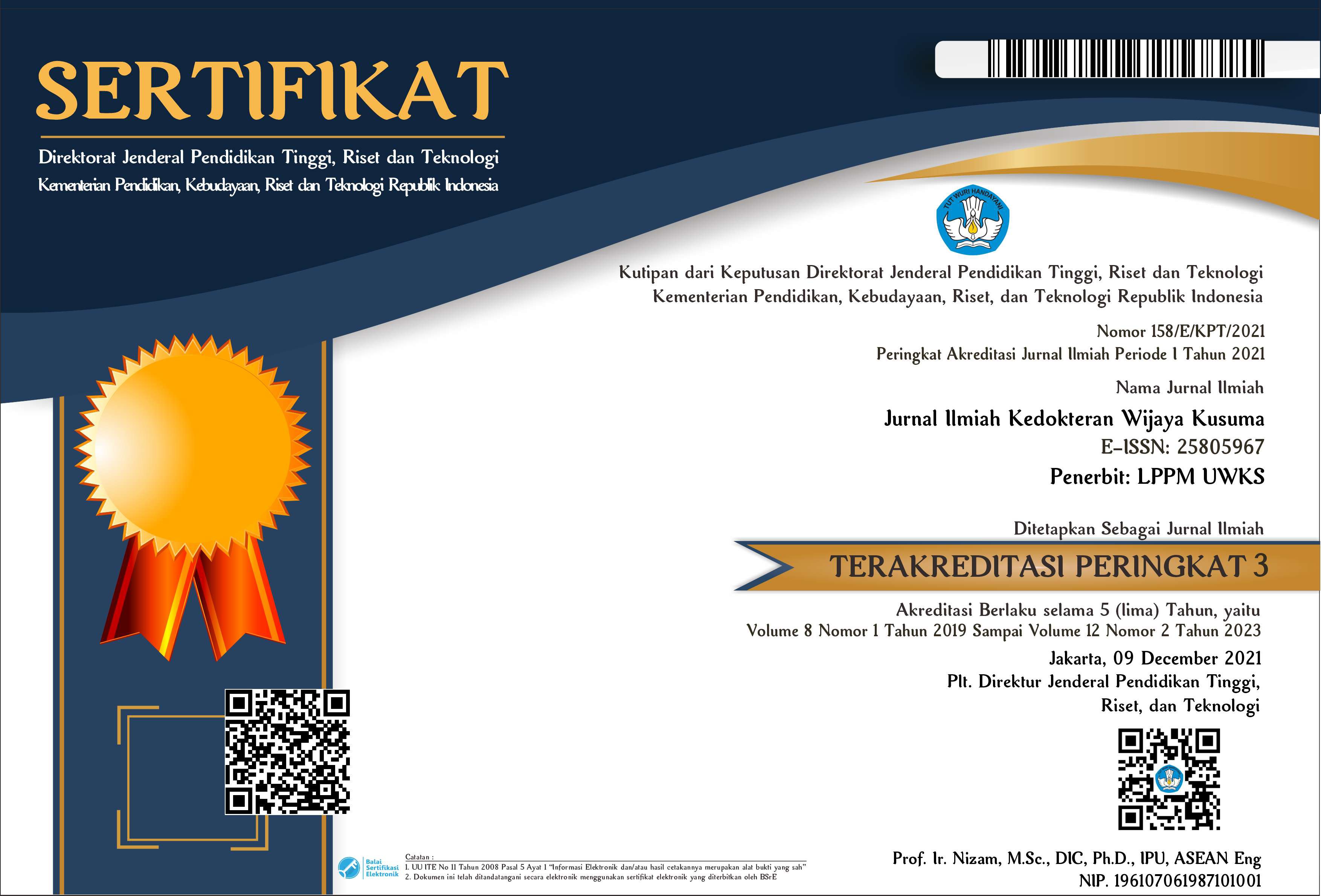PROTOONCOGENE
DOI:
https://doi.org/10.30742/jikw.v2i1.85Keywords:
Protooncogenes, oncogenesAbstract
Genes that promote autonomous cell growth in cqncer cells are called oncogenes, and their normal cellular counterparts are called protooncogenes. Protooncogenes are physiologic regulators of cell proliferation and differentiation,oncogenes are characterized by the ability to promote cell growth in the absence of normal mitogenic signals. Their products, called oncoproteins, resemble the normal products of protooncogenes with the exception that oncoproteins are devoid of important regulatory elements.Their production in the transformed cells becomes constitutive, that is, not dependent on growth factors or other external signal. Each of the cancer genes has a specific function, the dysregulation of which contributes to the origin or progression of malignancy. It traditional to describe cancer- causing genes on the basis of their presumed function.Mutations in genes that regulate these cellular traits are seen in every cancer. However, the precise genetic pathways that give rise to these attributes differ between cancers, even within the same orhan. It is widely believed that the occurrence of mutations in cancer-causing genes is conditioned by the robustness of the DNA repair machinery of the cell. When genes that normally sense andrepair DNA demage are impaired or lost, thevresultant genomic instability favors mutations in genes that regulate the other acquired capabilities of cancer cells.
References
Baselgea J, Hammond LA, 2002. HER- Targeted Tyrosine-Kinase Inhibitors. Oncology; 63 (Suppl I): 6-16.
Cox AD, Der Cj, 2002 : Ras family signaling : Therapeutic targeting . Cancer Biol Ther I : 599.
Davies H, et al 2002: Mutations of the BRAF gene in human cancer. Nature 417 :949
Hayes DF, ThorAD 2002 : c-erbB-2 in breast cancer : development of a clinically useful maker. Semin Oncol 29 : 231
Hanahan D, Weinberg RA 2000 : The hallmarks of cancer. Cell 100 : 57
Hardjolukito ESR, 2004. HER2 as Aprognostic and Predictive Faktor in Breast Cancer. Indonesian Issue on Breast Cancer, Surabaya.
Jeannon JP, Wilson JA, 1998. Cyclins, cyclin-dependent kinase, cylin dependen kinase inhibitor and their role in heat and neck cencer, Clin Otolaryngol,23: 420-424.
Kern SE 2001 : Progressive geneticabnormalities in human neoplasia.In Mandelshn J, Howley PM, Israel MA : The Molecular Basis of cancer, 2nd
ed Philadelphia, WB Saunders, 2001, p 41-69.
Kumar V,Cotran RS, Collins T, 2005. Neoplasia In Robins Pathologic Basis of Disease, 7th ed. Philadelphia : W.B. Saunders, p.269-342.
Malumbres M, Barbacid M 2003: RAS oncogenes : the fist 30 years. Nat rev Cancer 3 : 459
Mendelsohn J, Gabrilove J, 1995. Growth Factor in Malingnancy. In: Mendelsohn J, Howley PM, Istrael MA, Liotta LA, editors. The Molecular Basis of Cancer. Philadelphia : W.B. Saunders, p.432 –42.
Polsky D, Cardon CC, 2003. Oncogen in melanoma. Oncogene 22 : 3087 – 3091.
Sattler M, Griffin JD, 2003 ; Molekuler mechanisms of transformation by the BCR- ABL oncogenes. Sermin Hematol 40 : 4
Downloads
Published
Issue
Section
License
The journal operates an Open Access policy under a Creative Commons Attribution-NonCommercial 4.0 International License. Author continues to retain the copyright if the article is published in this journal. The publisher will only need publishing rights. (CC-BY-NC 4.0)
















